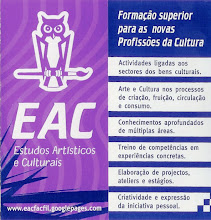Estas reflexões constituem uma oportunidade ímpar para se perspectivarem as políticas públicas para a área da Cultura, à luz das mais actualizadas aportações e enquadramentos legais. Neste âmbito, o presidente do CNC, Guilherme d’Oliveira Martins, escreveu a propósito:
“A História deixa de ser pertença de alguns, é uma encruzilhada que implica sempre a humanidade toda. E se os acontecimentos fazem as identidades, as identidades devem favorecer o novo entendimento das fronteiras, como linhas de encontro e de aproximação, muito mais do que de divisão e separação. E não se pense que falamos de abstracções. Não, falamos só de fronteiras que compreendam o conhecimento e os conflitos, mas que também regulem permanentemente esses conflitos na perspectiva de uma cultura de paz.”
Já sobre o livro Heritage and Beyond – disponível integralmente em formato PDF, na página web do Council of Europe –, pode ler-se a seguinte nota de apresentação:
“The notion of cultural heritage may be viewed from a number of standpoints. This publication is concerned less with the science and techniques of conservation than with the meaning of heritage and the contribution it can make to the progress of European society. It is firmly rooted in the principles of the Council of Europe, a political organisation committed to human rights, democracy and cultural diversity, and includes a range of articles that look at heritage in the context of the current challenges we all face. In particular, it shows how the Council of Europe's framework convention can enhance and offer a fresh approach to the value of the cultural heritage for our society. As such, it provides further reasons for states to ratify this convention, which was opened for signature in Faro, Portugal, in 2005, and adopt its dynamic and forward looking approach.
How and why did it seem appropriate at the start of this decade to draw up a new roadmap for our heritage? How had the concept changed and what implications could be drawn from this? How could the message transmitted by the Faro Convention foster the emergence of a new culture of development and greater territorial cohesion, leading to sustainable resource use and the involvement of everyone in the transmission of a heritage from which all of society would benefit?
This publication attempts to answer these questions, but also looks in depth at various themes introduced by the Faro Convention, such as the holistic definition of heritage, the concept of heritage communities and of a common European heritage, its different economic and social dimensions and the principle of shared responsibility. It also offers valuable insights into the relationships between the heritage, the knowledge society and the process of digitising cultural assets.”
Cândido Martins






.jpg)

Sem comentários:
Enviar um comentário